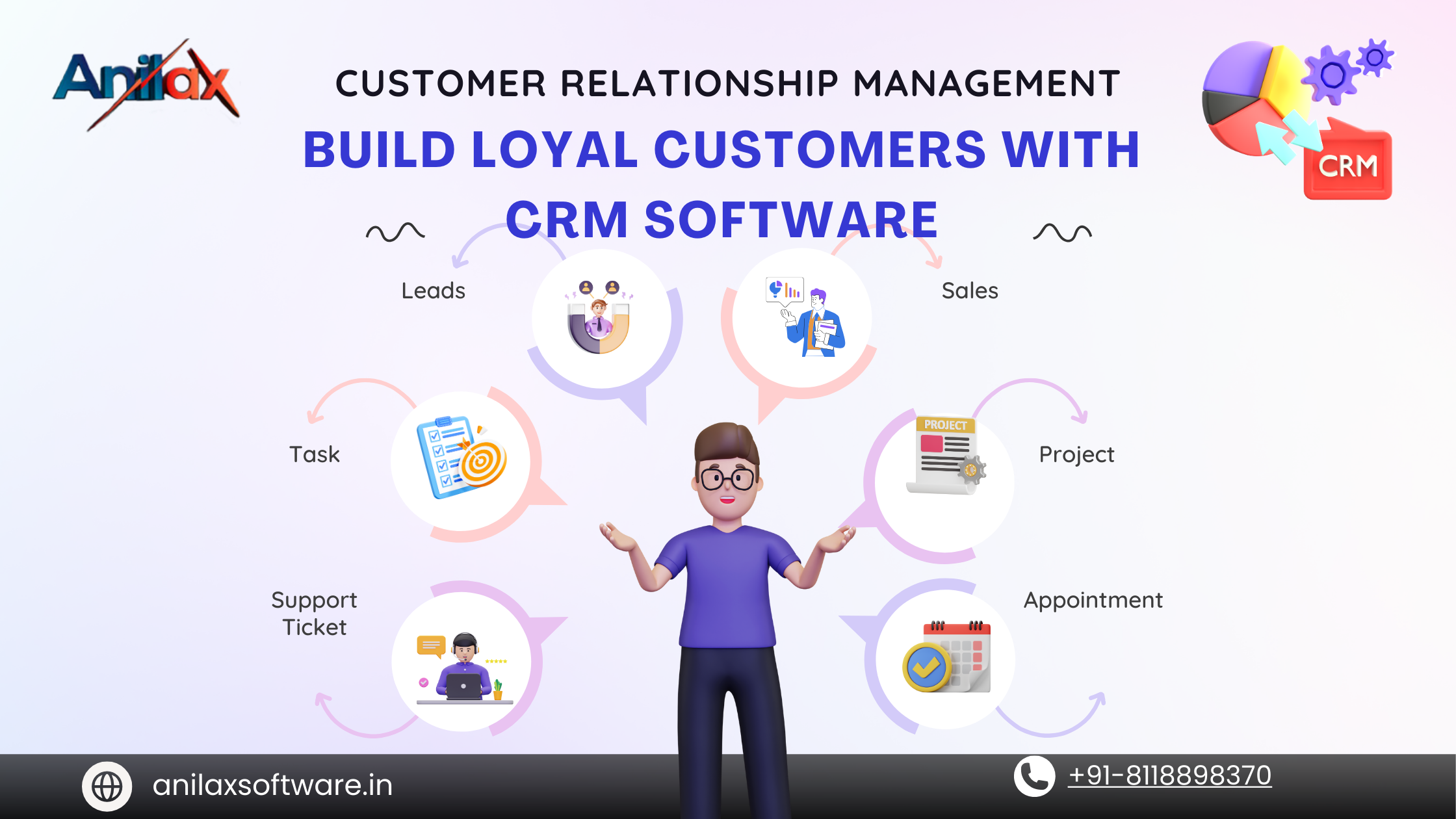In the digital age, businesses are constantly seeking ways to enhance customer relationships and drive sustainable growth. At the forefront of this endeavor is the adoption of advanced Customer Relationship Management (CRM) solutions. In this comprehensive guide, we delve into the transformative power of CRM software, exploring its key features, benefits, and the pivotal role it plays in modern business operations.
Understanding the Dynamics of CRM
Defining CRM in the Digital Era
CRM, short for Customer Relationship Management, has evolved into a technology-driven approach for managing interactions with current and potential customers. In today’s fast-paced business environment, the goal of CRM is clear: to improve relationships and foster business growth. At its core, CRM technology serves as a central hub for organizing customer data, streamlining processes, and optimizing customer engagement strategies.
The Role of CRM Systems
When people talk about CRM, they are often referring to CRM systems – sophisticated software solutions designed to track and manage every interaction with customers. These interactions span across various touchpoints, including sales calls, customer service inquiries, marketing campaigns, and social media engagements. By consolidating customer data and providing actionable insights, CRM systems empower businesses to deliver personalized experiences and drive customer loyalty.
Who Benefits from CRM?
Versatility Across Industries and Business Sizes
CRM software caters to companies of all sizes and industries, from large enterprises to small businesses and startups. Whether you operate in retail, finance, healthcare, or non-profit sectors, if customer communication is integral to your operations, CRM tools can revolutionize your approach to customer relationship management.
Empowering Every Department
One of the key strengths of CRM is its ability to benefit multiple departments within an organization. Sales teams leverage CRM systems to track leads, manage pipelines, and optimize sales processes. Marketing teams utilize CRM data to personalize campaigns, target specific audience segments, and measure campaign effectiveness. Customer service departments rely on CRM platforms to deliver seamless support experiences and resolve issues promptly. Additionally, IT departments leverage CRM integration capabilities to streamline workflows and enhance data security.
The Importance of CRM for Business Success
Navigating Complexity with CRM Solutions
In today’s digital landscape, businesses grapple with an array of challenges, from data overload to fragmented systems. The average organization utilizes a myriad of applications, yet integration remains a significant hurdle. In this context, CRM emerges as a strategic imperative, offering a unified solution to navigate complexity and stay customer-centric.
Driving Efficiency and Cost Savings
A fundamental benefit of CRM is its ability to drive operational efficiency and cost savings. By providing a single source of truth for customer data, CRM systems eliminate silos and redundancies, enabling teams to work cohesively towards common objectives. Sales teams benefit from streamlined processes, accurate forecasting, and reduced administrative burden. Moreover, CRM automation capabilities minimize manual tasks, allowing employees to focus on value-added activities.
Unlocking the Benefits of CRM
Connecting Business Silos
In the realm of CRM solutions, Anilax Software stands out as a leader in the segment, offering cutting-edge software designed to streamline operations and enhance customer relationships. With Anilax CRM, businesses gain access to a comprehensive suite of tools that empower teams to collaborate seamlessly, leverage AI-driven insights, and deliver exceptional customer experiences. By integrating Anilax Software into their operations, companies can break down silos, foster cross-departmental collaboration, and achieve new levels of efficiency and effectiveness.
Enhancing Customer Experience
At the core of Anilax Software’s CRM solution lies a commitment to enhancing customer experience. By leveraging advanced AI algorithms and predictive analytics, Anilax CRM enables businesses to anticipate customer needs, personalize interactions, and deliver targeted messaging across channels. Whether it’s automating personalized email campaigns, optimizing sales processes, or resolving customer inquiries promptly, Anilax Software empowers businesses to exceed customer expectations and drive long-term loyalty.
Leveraging AI in CRM
Transformative Power of AI-Driven Insights
In recent years, Artificial Intelligence (AI) has emerged as a game-changer in the realm of CRM. By harnessing the power of AI algorithms, CRM systems can unlock valuable insights, predict customer behavior, and automate repetitive tasks. From predictive analytics to generative AI, these capabilities enable businesses to make data-driven decisions, streamline processes, and stay ahead of evolving customer expectations.
Personalization at Scale
One of the key benefits of AI in CRM is its ability to deliver personalized experiences at scale. By analyzing vast amounts of customer data, AI algorithms can identify patterns, preferences, and trends, enabling businesses to tailor their offerings to individual needs. Whether it’s recommending products, optimizing pricing strategies, or crafting targeted marketing campaigns, AI-driven personalization enhances engagement and drives conversion rates.
The Future of CRM: Innovations and Trends
Continuous Evolution of CRM Technology
As technology continues to advance, so too does the landscape of CRM. From the rise of cloud-based solutions to the integration of emerging technologies like blockchain and Internet of Things (IoT), CRM platforms are constantly evolving to meet the changing needs of businesses. Looking ahead, the future of CRM promises greater integration, customization, and scalability, empowering businesses to thrive in an increasingly digital world.
Embracing Omnichannel Experiences
In an era defined by interconnectedness and mobility, the concept of omnichannel customer experiences has gained prominence. Modern CRM systems are designed to facilitate seamless interactions across multiple channels, including email, social media, mobile apps, and more. By unifying customer touchpoints and delivering consistent messaging, businesses can create cohesive brand experiences and foster customer loyalty.
Conclusion
In conclusion, CRM software represents a cornerstone of modern business strategy, enabling organizations to drive growth, enhance customer relationships, and stay competitive in today’s dynamic marketplace. By leveraging advanced CRM solutions and embracing innovation, businesses can unlock new opportunities, streamline operations, and deliver unparalleled value to customers. As technology continues to evolve, the future of CRM holds immense promise, empowering businesses to achieve sustainable success in the digital age.




